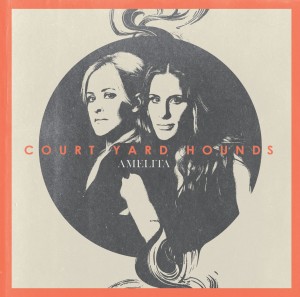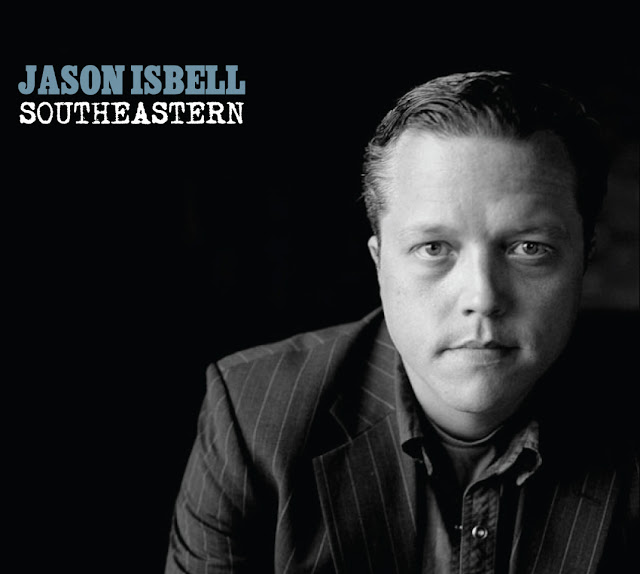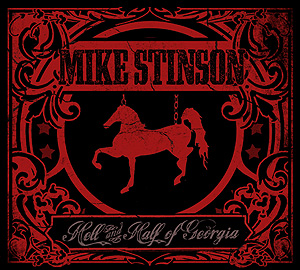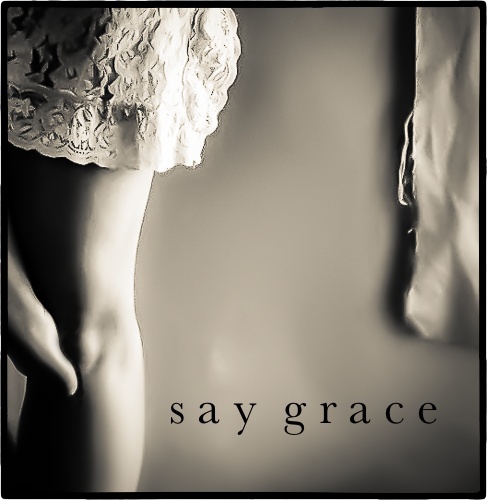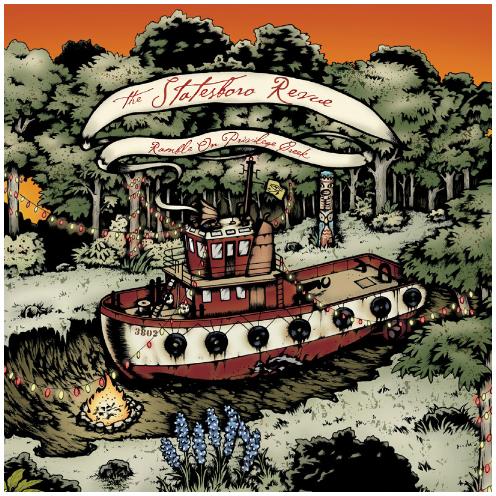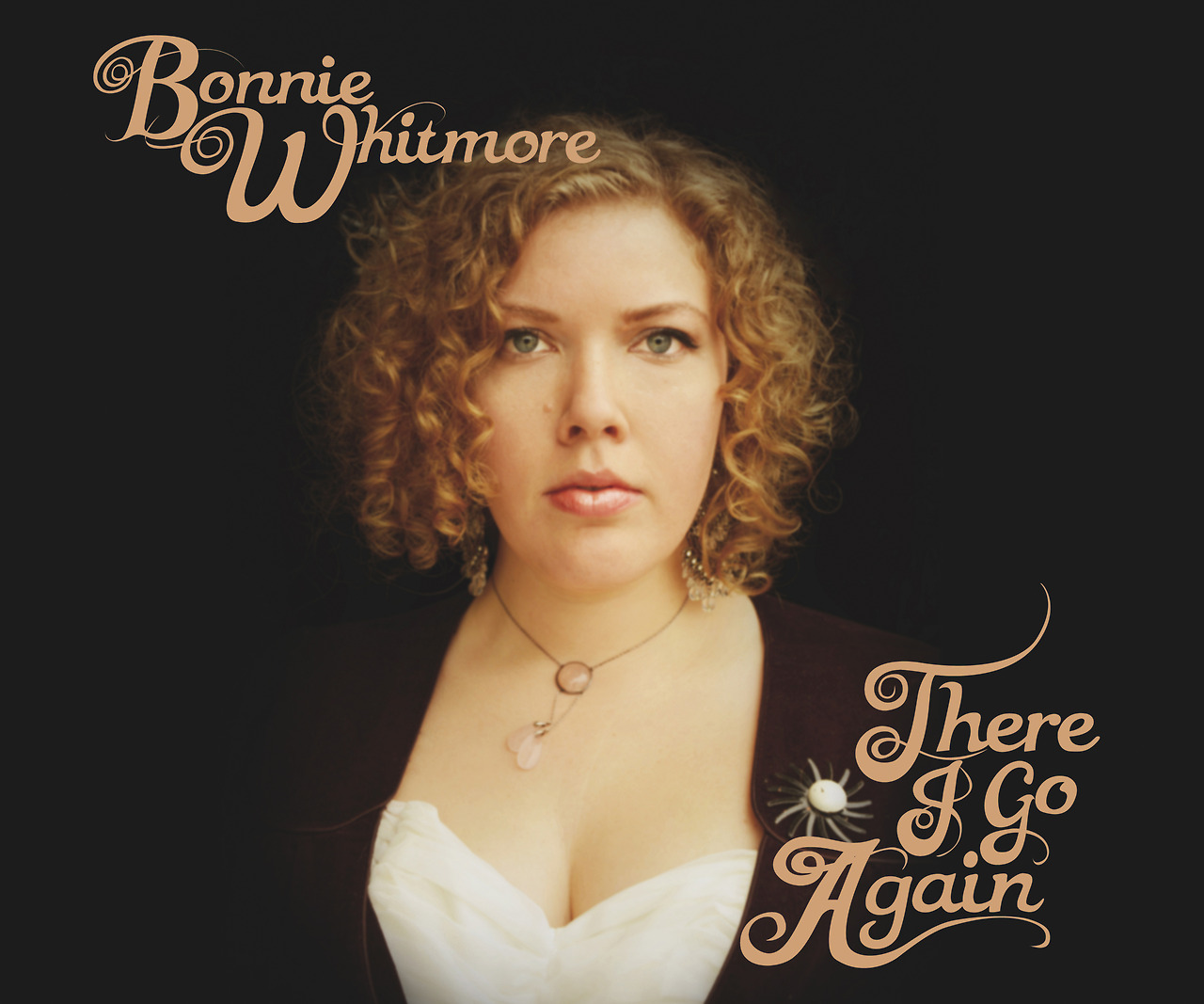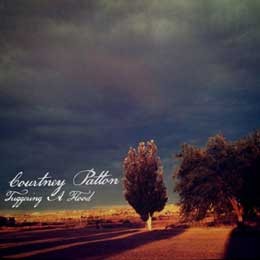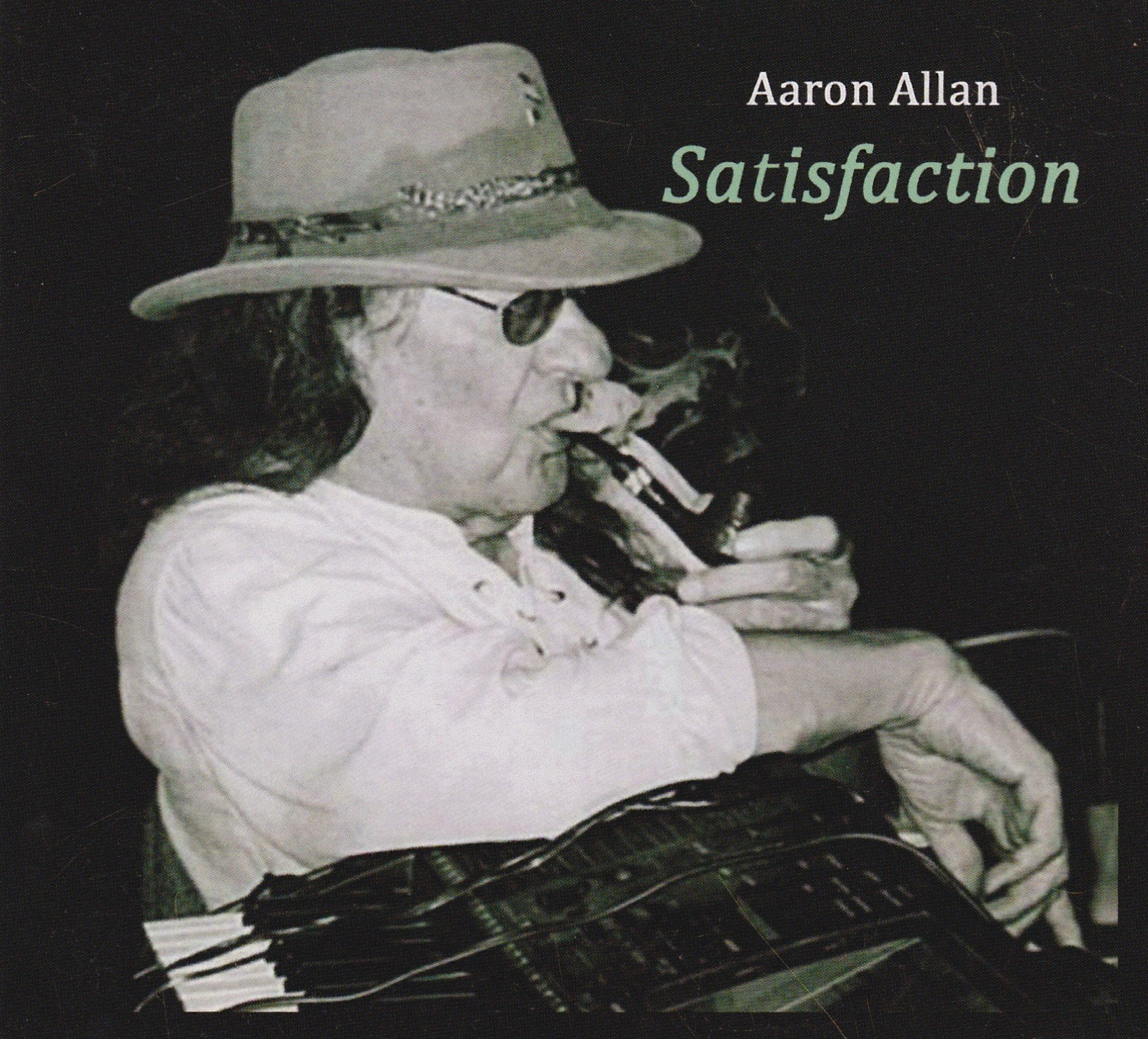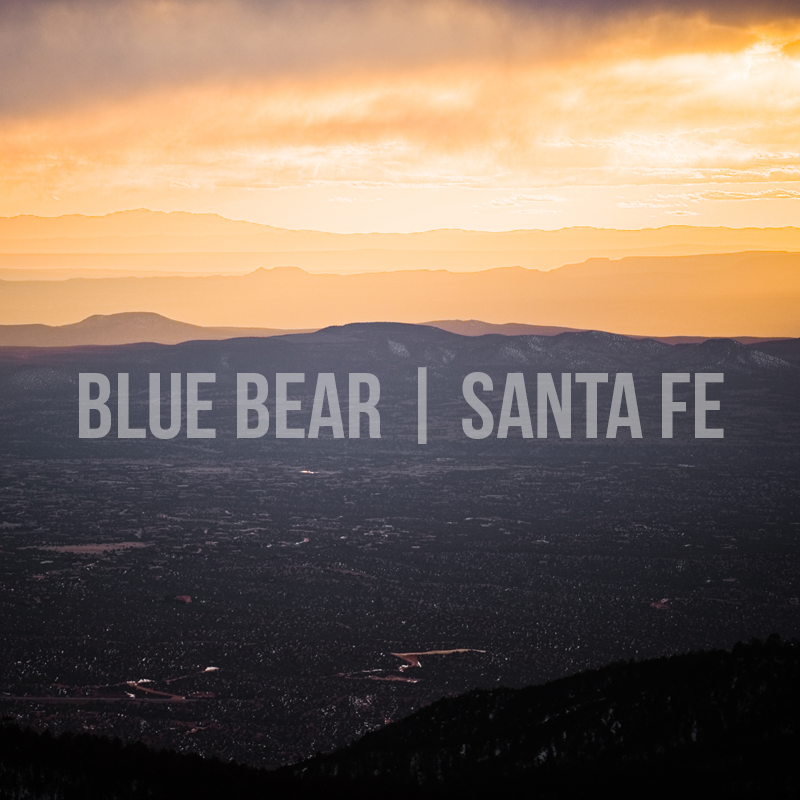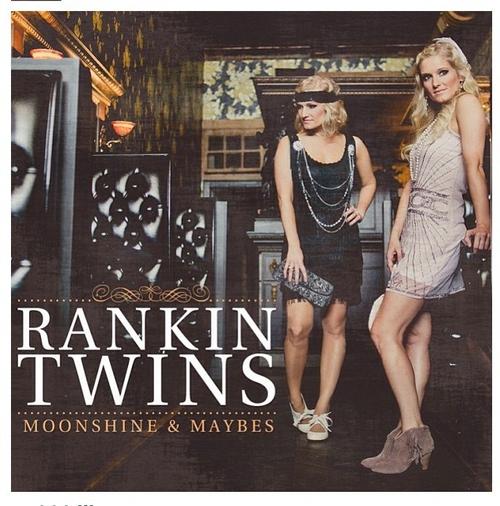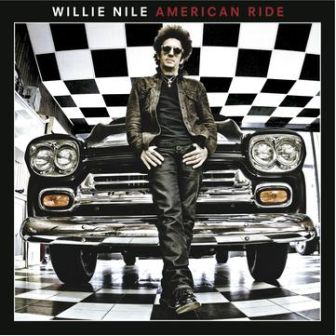 |
|---|

|
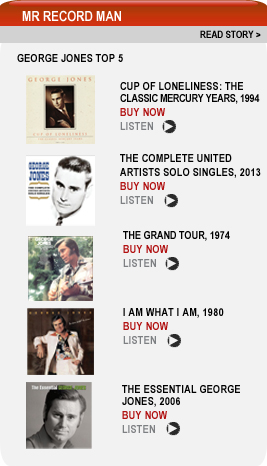
REVIEWS |
|---|
Long before Natalie Maines turned the Dixie Chicks into a runaway freight train without brakes, they were a roots band anchored in acoustic instruments and the stellar musicianship of sisters Emily Robison and Martie Maguire (nee Erwin). When the Chicks went on hiatus, the sisters kept on playing together as the Court Yard Hounds, offering a more esoteric take on acoustic songcraft with their self-titled 2010 debut as well as creative outlet for Robison in the wake of her divorce. Three years later, the dust has settled and the CYH are back with a new album, Amelita, and a much brighter outlook.
|
|
Given her stubborn first-name-only shtick, compounded with her decision to self-title her second album and spell it on the cover with a photo of her name emblazoned on a tattoo across a dude’s chest, San Marcos’ HalleyAnna (nee Finlay) seems a tad over-obsessed with standing out from the crowd of female singer-songwriters. She really shouldn’t be that concerned, though, because as shown both here and on her 2011 debut, The Country, nobody else in Texas (or anywhere, for that matter) has a voice quite like hers, a slurry, mischievous drawl that flips from hard-core twang to playful quirk to heart-rending vulnerability at the twist of a lyric. She’s no wallflower of a songwriter, either: she has an especially endearing knack for crafting twisty, eccentric melodies (as best demonstrated on the whimsical “The Bee” and the achingly bittersweet “Out of the Blue”), and her winsome sense of humor comes to the foreground in “Tattoo” (whose punch line inspired the album cover). And’s she’s just as effective at getting her unique personality across when she plays it straight, both on up-tempo shuffles like “The Letter” and on last-call weepers like “Playing Along.” Bottom line: Ain’t nobody who hears HalleyAnna’s HalleyAnna is going to forget her name, but it’s her talent that really leaves a mark. — RICHARD SKANSE
|
|
JASON ISBELL |
By the time you read this, you’ll have likely already heard a lot of praise for Jason Isbell’s Southeastern, with both fans and critics dishing out the kind of superlatives typically reserved for songwriting legends such as Guy Clark, John Prine or even Leonard Cohen. A degree of skepticism is usually called for in such cases, but let’s be clear here: all the plaudits are rightfully placed. And as much as Isbell’s last outing, 2011’s Here We Rest, was an excellent record in its own right, the heavily acoustic, mostly mid-tempo Southeastern will assuredly be the measure that all Isbell albums will be judged against henceforth. The Alabama-native, whose expressive drawl has never sounded better, has long been regarded as a fellow who knows his way around writing — he was a standout at his craft from the moment he joined the Drive-by Truckers at age 22, more than a decade ago. So it’s no surprise to find so many songs here as memorable as the tangled-bedsheets of “Cover Me Up,” and the bracing, yet beautifully reminiscing “Different Days.” But the song that will be placed atop any “Best of Isbell” list a decade or two from now is the soul-ripping “Elephant,” a pensively-strummed tale of a man at a hopeless crossroads — not in his own life, but in that of cancer-stricken friend staring into death with all the humor and stark-resignation either can muster. On the strength of that song alone, not to mention the rest of the flawless Southeastern, Isbell is no longer a former-member of the Drive-by Truckers, but a bona fide giant of contemporary Americana. — KELLY DEARMORE |
AMANDA SHIRES
|
When West Texan Amanda Shires up ’n’ moved to Tennessee, it was obvious she’d never slide into the neo-hipster or bad big country of the 6-1-5. What wasn’t obvious was the springboard her creativity found: fearless excavations beyond classic song structure and odd metaphors in the name of clearer communication. Down Fell The Doves, her third album since landing in Nashville and first for Lightning Rod Records, opens with the staccato “Look Like A Bird,” hunting and pecking its way through a quirky, herky-jerky rhythmed song that suggests a Texas Kate Bush or punk pioneer Lene Lovich. Not a mannered performance, its precision puts the listener on notice: this is not what you’re expecting. Produced by Andy LeMaster in Athens, Ga., the album is a supple, at times noir collection of jewels that glitter in the darker places. “Box Cutter” is a truculent examination of too many ways to terminate one’s life; think Sylvia Plath buoyed by a burgundy undertone that makes suicide downright seductive. Equally mirthsome and macabre is the real-life gift of a tiger’s claw that inspired “Bulletproof,” an Addams Family worthy romp of all the ways Shires could stand for target practice if the giver’s claims were true. Elsewhere, she conjures fantasies both awkwardly adorable (“Song for Leonard Cohen”) and hopelessly romantic (“Stay”); but Shires is most engaging letting her doubt and jealousy spread like a wine stain, as on the Jason Isbell guitar-etched “Devastate.” Subtle, intoxicating, and clearly the work of a woman not afraid of her inner Flannery O’Connor, Down Fell The Doves marinates the singular and offbeat. — HOLLY GLEASON |
GEORGE STRAIT
|
In his 32nd year of recording hit after smash-hit, does the 62-year-old George Strait really need to be singing about girls in cotton dresses and having a car that impresses them? Probably not, but that’s exactly how he opens Love Is Everything: with the admittedly catchy but manipulatively tear-jerking “I Got a Car.” It seems King George can get away with pretty much whatever he wants these days, especially on an album releasd concurrent with his highly emotional farewell tour. But as sincere as he may be singing the album’s closing track, aptly titled “When the Credits Roll,” the slick, mid-tempo number is little more than a fluffy swab of cotton candy. Fortunately, there are a few jukebox-worthy gems in between those two clunky bookends. “Blue Melodies” and “I Just Can’t Go On Dying Like This” are great, slow-paced sawdust shufflers, and “I Thought I Heard My Heart Sing” is a fiddle-riffic tune that demands a guy twirl his girl. Still, as Strait albums go, it pales next his classics and even his solid run of releases from the last few years (Here For a Good Time, Twang, and especially Troubadour). Love Is Everything won’t necessarily diminish King George’s legacy, but considering the glorious reign he’s had, it’s a shame he didn’t end on a higher note. As this cowboy rides away, he leaves fans with a decent album instead of a great one. |
MIKE STINSON
|
In the pantheon of so-called “neo” honky-tonkers, Mike Stinson already loomed rather large when he shifted his focus from L.A. to Houston. Now, after three years as a Texan, he’s a roadhouse favorite, even playing Chicken Shit Bingo Sundays at Austin’s Ginny’s Little Longhorn Saloon. But although Hell and Half of Georgia’s official ode to Stinson’s new state is the campy “Died and Gone to Houston,” a “London Homesick Blues”-style twanger, it’s songs such as “Walking in the Rain” and “The Box I Take To Work” that ultimately offer more satisfaction. The former, a slightly melancholy tune full of cascading guitar solos and gentle drops of harmony, points to the reality that what Stinson lacks in vocal quality, he somehow makes up for in lyrical and melodic skill. That’s further proven in “The Box I Take to Work,” which starts out as a catalog of stuff a musician drags around but becomes a metaphor-driven litany of the life, with lines of utter brilliance tossed out as casually as toothpicks. “I got a bunch of replacement parts for every time I come unwound,” he sings, later promising, “I can fix bruises and blisters, cuts and scrapes/to go with the pain I got some George Jones tapes.” With the occasional power chord or Stonesy riff snuggling under this pedal-steel-embroidered quilt of countrified rockabilly and honky-tonk songs, Stinson twangs his way into a permanent place in Texans’ hearts. — LYNNE MARGOLIS |
SAM BAKER |
Sam Baker might be the most captivating songwriter in America. You’ll probably never catch yourself singing one of his songs in the shower, because his melodies generally tend to be as bare-bones servicable as the raspy scratch of his singing; but by God, you listen to what he has to say, hanging on for every line like a baby bird at feeding time. Sometimes his words come out haltingly, one by one; others tumble out of his mouth in spurts of nursery rhyme cadence (“copper penny for your thoughts/copper jacket full of lead/they wanted little Jimmy Cagney dead ...”) By the time he sing-speaks them all, he’s burned a black-and-white image or sometimes even a whole movie in your mind that lingers long after each song ends. Some, like “Juarez” and “Odessa” from 2007’s Pretty World, will haunt you for life. Baker’s fourth album, Say Grace, adds several more masterpieces to that gallery, begining with the title track’s poignant portrait of a woman weighing the ghosts of her past against the lonely onset of advancing age. In “Migrants,” he tells of 14 men who cross the border only to succumb to the elements of the brutal Sonora desert. “Ay mijitos/they looked like dried leaves/scattered in the sun,” Baker sings with a sadness underscored by Joel Guzman’s keening accordion. “They got 12 lines in a midwestern paper/on the pages with the ads for shoes.” But there’s true grace here, too, from the sweetly touching but unmawkish “Isn’t Love Great” to the surprise sense of humor leavening the blue-collar angst of “Ditch”: “My wife God bless her and for what it’s worth/thinks she and Taylor Swift/were twins at birth/separated at birth/Earth to wife/wife to earth!” — RICHARD SKANSE |
THE O’S
|
The O’s — the Dallas duo comprising Taylor Young on acoustic guitar and kick drum and John Pedigo on banjo — play an energetic kind of roots rock, making a mighty big noise with only three instruments. On Thunderdog, Young¹s acoustic slide guitar sizzles with energy and he plays with an attack that¹s somewhere between a rocker and a master of the pedal steel. His drumming is just as impressive: on songs like the bluesy “Cicerone” and the slow-stomping “Rearranged,” it’s hard to believe all the percussion isn’t coming from a full drum kit. Meanwhile, Pedigo uses elements of folk and country fingerpicking in his banjo playing, but just as often he plays long meandering lines that sound more like a staccato guitar, giving the tunes an aura that’s both familiar and slightly strange. He takes his instrument to the outer limits on the album’s final track, “Kitty.” With his banjo plugged into a fuzz pedal, Pedigo delivers a solo that has hints of metallic shredding. It’s just another example of how far these two O’s can and do go when they leave the constraints of tradition and old-time music behind. — J. POET
|
THE STATESBORO REVUE
|
If Stewart and Garrett Mann had created the Statesboro Revue in the ’70s, they almost certainly would have found a home on the roster of the legendary Capricorn Records. Although many fans of the regional Texas music scene might be incined to compare Ramble on Privilege Creek to the best work of Austin’s Band of Heathens (and accurately so), Statesboro Revue’s mix of soulful Americana and jammy Southern rock reaches all the way back to the Allman Brothers’ prime. Instrumentally, the album varies from the jangly banjo of “Huck Finn” to the tinkling keys of “Half Mile to Lincoln,” a song Black Crowes fans might mistake for different brothers. And although the first single, “Fade My Shade of Black,” isn’t necessarily the best track on the album, it does a great job of displaying Stewart Mann’s soaring, buttery vocals. But Ramble on Privilege Creek really doesn’t sound like a collection of singles so much as it does a cohesive album. There’s a definite narrative to this jam, and true to its title, the measure of the pace is quite the ramble. — CODY OXLEY |
BRANDY ZDAN
|
Clocking in at a modest 21-minutes, Brandy Zdan’s debut six-song EP, Lone Hunter, is a textbook example of the leave-’em-wanting-more ethos at its best. “Debut” seems a misnomer, given that the native Canadian (now living in Austin) is no out-of-nowhere rookie: she’s already recorded two albums as one-half of the Winnipeg-formed duo Twilight Hotel (with partner Dave Quanbury), and played a supporting role as the Trishas’ unofficial fifth member (playing all their instrumental leads onstage but not singing a note) for the last couple of years now. But this is Zdan’s first turn in the spotlight under her own name, and apart from a few assists from producer George Reiff, pedal steel player Ricky Ray Jackson and Trishas Jamie Wilson and Kelley Mickwee, it’s a one-woman tour de force. Zdan plays guitar, lap steel, Wurlitzer, synths, drums and percussion, and her voice is an understated stunner (especially on the gorgeous “O Where.”) Elsewhere, “Blood As the Ink” jumps out with its indie-rock pulse and indelibly catchy chorus, and the title track is a mesmerizingly spare beauty reminiscent of prime Nick Drake. But really, there’s not a wasted note or minute on here. Odds are, you’ll be playing the whole thing at least two or three times in a row after the first listen. |
BONNIE WHITMORE
|
With There I Go Again, Austin’s Bonnie Whitmore continues to provide greater proof of the promise she’s been showing on the Texas music scene for years. While she’s spent much of her career to date playing as a side person for others (most notably Hayes Carll), Whitmore is very much her own artist at this juncture. If 2011’s stunning Embers to Ashes was Whitmore stretching her solo-legs, her new album is a triumphant sprint. Her voice is bolder now, and through tracks such as the smoky, country noir “Crying for Me,” she displays a great deal of authentic gumption instead of mere pistol-packed posturing. Further displaying her maturity, Whitmore goes moody-rock with the sensuous imagery of “Colored Kisses” set to a melodic, unobtrusive organ and crunchy, perfectly placed guitar bits. But given her folk-rich bloodline she shares with her both her singing father Alex and fiddle-playing older sister Eleanor, it’s no surprise that Whitmore shines especially bright when the There I Go Again’s rootsier elements kick in. “Too Much Too Soon,” a vulnerable wish to not fall too hard, soars with pedal steel, and both the title track and “Reckless and Young” rollick while letting the fiddle dance plenty. — KELLY DEARMORE
|
COURTNEY PATTON
|
Triggering a Flood is Courtney Patton’s second album, but it’s such a leap in confidence over 2008’s modest and little-heard Still Around that you can’t blame Patton for pushing this one like her true debut. Indeed, there’s a palpable, this-is-my-moment-and-I’m-gonna-make-it-count sense of determined urgency on display right from the very start. Patton comes out swinging with “Twisted,” a full-throated roar of a break-up anthem packing a wallop of a hook and the first of many knockout vocal performances on the album. Patton’s voice is a country powerhouse, supple enough to wrap around a sad-eyed ballad like the “The Fool” (a song that her friends the Trishas premiered last year on their full-length debut, High, Wide and Handsome) and commanding enough to keep an assertive grip on the reins through more assertive fare like “Better Man” and “It’s Not Easy.” Even when the album’s momentum hits a bit of a snag under the weight of a few too many slower songs, Patton always sounds fantastic (likewise, her lyrics hold up even when the melodies sometimes don’t.) Meanwhile, the production, helmed by John Ross Silva, is uniformly excellent, with stellar studio support by David Abeyta of Reckless Kelly, Scott Davis, Lloyd Maines, Adam Odor, Kevin Szmanski, Sweeney Tidball, and three out of the four Trishas (Jamie Wilson, Liz Foster, and Kelley Mickwee). But Triggering a Flood is unmistkably Patton’s showcase, and one that heralds the true arrival of a talent long overdue for a breakout. |
AARON ALLAN
|
Aaron Allan was just another songwriter I wasn’t familiar with the first time I heard him at Cheatham Street Warehouse, but he had my full attention after Big Tom clued me in: “Willie Nelson recorded one of Aaron’s songs before most of the people in this room were born.” Allan, now in his 80s, really does have a remarkable story, and the highlights are chronicled in fine fashion on his new album Satisfaction. The double-disc collection runs over 40 tracks and plays like Allan hosting the radio show of his life. By track 12, he’s already shared the stories of getting his song into Willie’s hands, hosting Johnny Cash’s first radio interview, and receiving a death threat from Roger Miller. Allan’s portion of the singing is just him, a microphone, and a guitar — there’s no snazzy production gloss. His lyrics are simple, stark, and universal, swaying from the spiritual on “Truth Number One” to, well, spirits: in “The Bar,” a piece of wood that winds up a fixture in a drinking establishment shares its own life story. And Allan’s “Baby Blue” may well be the greatest white-trash love story ever told (but I won’t ruin the ending for you.) Halfway through the second disc, Allan yields the floor to a different singer, Chet McIntyre, who closes the album out performing Allan’s songs in a jazzier lounge style. It’s an odd change of pace, but it aptly demonstrates the versatility of Allan’s writing. Still, it’s his tale-spinning here that’s arguably the most satisfying thing about Satisfaction. Interspersed with the earthy, unvarnished craftsmanship of his songs, they capture an intimacy beyond just another songwriter’s night. It’s more like spending an evening on the porch with a troubadour historian. |
CHARLA CORN
|
With the release of the imminently enjoyable Stella, Charla Corn effectively presents herself as a country girl with a folky-soul and a rebel’s spirit. Though sonically diverse — ranging from the breezy “In My Heart” to the gospel-lit plea of “Prayer List” — Stella remains cohesive and stands as a full-fledged statement of Corn as an artist, wife, daughter, and new mother. And while many of the other songs lean heavily on her sincere spirituality (including the soul-stirring, Rebecca Lynn Howard-penned ballad “Jesus, Daddy and You”), Corn proves she can spin gold regardless of what she’s writing and singing about. She shows off her storytelling side and brandishes her Red Dirt bona fides in spades on “Chris Knight” — named, of course, after the famed Kentucky farmer turned gritty songwriter’s-songwriter. Corn expertly mixes her personal memories of time with her husband — an apparent diehard Knight fan — with Knight song titles such as “Jealous Kind,” “Love and a .45,” and “Enough Rope” to produce a highly entertaining tribute not so much to Knight’s musical prowess, but rather to the love of her life. — KELLY DEARMORE |
BLUE BEAR
|
Still-new Austin band Blue Bear plays exactly the sort of indie rock you’d both expect and hope would spring from Texas: earthy and rooted but with a sort of restless, exploratory mystique that reaches to fill all those wide-open spaces and wander a couple million miles of backroad. Santa Fe might seem like a trifle on first glance, a slim five-song EP from five nice, unassuming guys united under a modestly quirky name. But the first listen is a different story, hearing each song unfold with the sort of inclusive, expanding grace that often touches on dreamy pastoral sounds (think Fleet Foxes or Bon Iver) before toughening up to more muscular pop-rock on par with the likes of Fastball or Ha Ha Tonka. It’s indie in budget, but mainstream in delivery; you could even two-step to the title track, should the spirit move you. The lead vocals — Jeremy Holmsley is oddly reminiscent of country legend Marty Robbins, especially on the Western-tinged “Homesick Ways,” and Brandon Aguilar’s got a gritty tenor your average singer-songwriter would kill for — lay a dependable foundation for some swoon-worthy full-band harmonies. Those chiming, unified voices could be considered Blue Bear’s ace in the hole if it wasn’t for the fact that they already seem to be holding a full house. — MIKE ETHAN MESSICK |
THE RANKIN TWINS
|
The Rankin Twins aren’t lying when they sing they’ll “bring the swagger.” For their first full-length album, the Texas Twins (Amy and April) successfully bust-out just about every weapon they can in order to craft a debut that comes off as anything but a beginner’s record. Much of Moonshine & Maybes’ substance can be credited to how the now-seasoned Twins wisely waited to release a long-player instead of rushing one out as soon as they started gigging a few years back. They also lined-up some legitimate talent in the form of Ben Danaher, Thom Shepherd and Drew Womack, among others, to lend an instrumental, vocal and writing hand. In fact, although the Rankins (together or separate) were involved in writing nine of the record’s 10 tunes, it’s the one song on the album they didn’t write that showcases Moonshine’s irresistible appeal at its best. With the Rankin girls singing their spritely hearts out about a Jesus-hating drunk redhead and Noah Jeffries of Milkdrive playing the hell out of his fiddle and mandolin, the romping, stomping “Jezebel” (written by Paul Eason) will light up any barn it’s played near. — KELLY DEARMORE |
WILLIE NILE
|
It’s always surprising when one travels outside of the Lone Star State and is reminded that there’s a whole slew of supposed music fans out there in the world who’ve never even heard of, say, Alejandro Escovedo. Well, guess what? There’s plenty of folks up there in New York and over in Europe who are similarly shocked to hear a Texan ask “Willie who? Willie Nillie?” when told of a songwriter who is every bit the American master as Springsteen, Fogerty, Petty and, yes, Escovedo all are. Willie Nile been around for years, so if the name doesn’t ring a bell, get with the program and make room for a new favorite. After a late-career surge that has found Nile, a ripe ‘ol rocker of 65, cranking out four top-shelf releases since 2004 (Beautiful Wreck of the World, Streets of New York, House of a Thousand Guitars, and The Innocent Ones), he’s now added one for the thumb with the showpiece American Ride. Nile burst onto the scene in 1980 with his eponymous debut, and was soon opening for the Who and cashing those “next big thing/Dylan” advance checks. But then came years of contractual legal issues and an entire decade passed between his second and third releases. So Nile writes from experience about an “American ride” that epitomizes the kind of career arc — familiar to more than a few of us — that requires sucking things up and rolling through the punches with a stiff-upper lip smile. He channels that relentless positivity in the face of adversity and turns it into surging anthems like “This Is Our Time,” the exhilarating carpe diem chant-along that jumpstarts the album. The journey further showcases Niles’ adroit way with words, wit, hooks, and instantly memorable melodies on the folkie/Americanish “There’s No Place Like Home,” which throws a bone to Dorothy and Toto, natch; “Sunrise in New York City,” which the Big Apple’s travel and tourism folks should glom on to right quick; and the beautiful homage to a lover, “She’s Got My Heart.” Niles also kills the album’s sole cover, the Jim Carroll classic “People Who Died.” But the real highlights on American Ride are the two tracks that potently invoke the omnipotent one. “Holy War” is a wry indictment of those who do terrible, terrible things in the name of religion: “God is great, but you suck/your fingerprints were on the truck that blew up babies out of luck/God is great, you suck!“ And “God Laughs” is a comical canticle about a day in the life of the Almighty: “God drinks, God smokes, God plans to quit before he croaks and why? Because he’s God!” God, Willie Nile’s both good and great. — D.C. BLOOM |
|
|
